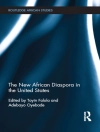India faces a defining period. Its status as a global power is not only recognized but increasingly institutionalized, even as geopolitical shifts create both opportunities and challenges. With critical interests in almost every multilateral regime and vital stakes in emerging ones, India has no choice but to influence the evolving multilateral order. If India seeks to affect the multilateral order, how will it do so? In the past, it had little choice but to be content with rule takingadhering to existing international norms and institutions. Will it now focus on rule breakingchallenging the present order primarily for effect and seeking greater accommodation in existing institutions? Or will it focus on rule shapingcontributing in partnership with others to shape emerging norms and regimes, particularly on energy, food, climate, oceans, and cyber security? And how do India’s troubled neighborhood, complex domestic politics, and limited capacity inhibit its rule-shaping ability?Despite limitations, India increasingly has the ideas, people, and tools to shape the global orderin the words of Jawaharlal Nehru, "not wholly or in full measure, but very substantially." Will India emerge as one of the shapers of the emerging international order? This volume seeks to answer that question.
Bruce D. Jones & Pratap Bhanu Mehta
Shaping the Emerging World [EPUB ebook]
India and the Multilateral Order
Shaping the Emerging World [EPUB ebook]
India and the Multilateral Order
ซื้อ eBook เล่มนี้และรับฟรีอีก 1 เล่ม!
ภาษา อังกฤษ ● รูป EPUB ● ISBN 9780815725152 ● บรรณาธิการ Bruce D. Jones & Pratap Bhanu Mehta ● สำนักพิมพ์ Brookings Institution Press ● การตีพิมพ์ 2013 ● ที่สามารถดาวน์โหลดได้ 6 ครั้ง ● เงินตรา EUR ● ID 2766990 ● ป้องกันการคัดลอก Adobe DRM
ต้องใช้เครื่องอ่านหนังสืออิเล็กทรอนิกส์ที่มีความสามารถ DRM












